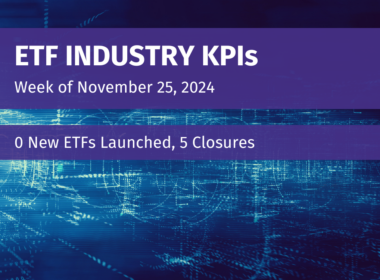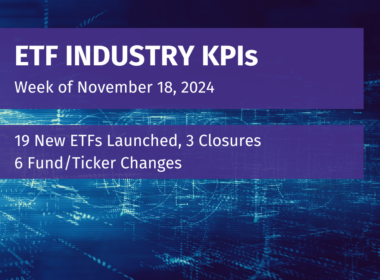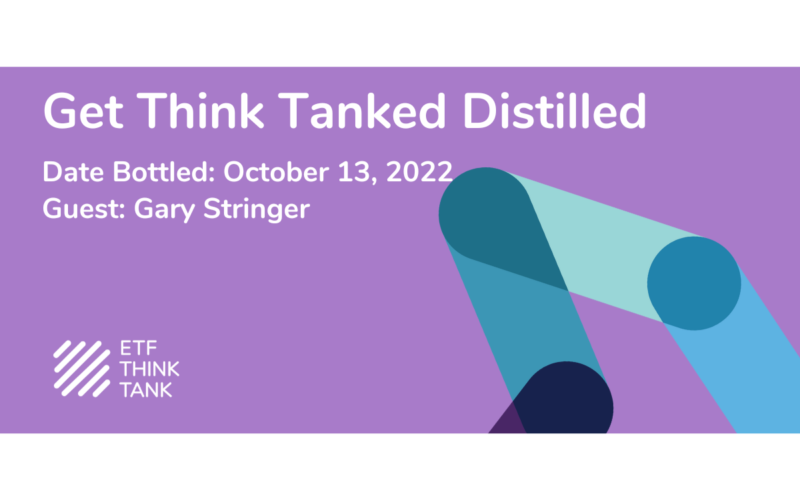The restaurant sector has seen some of the biggest economic volatility of the past two years. Business cratered during the COVID shutdown and is still struggling to get back to where it was. Michael Halen, the senior restaurant & food service analyst at Bloomberg, has been keeping close tabs on the sector and joins the ETF Think Tank to offer up his lay of the land.
Halen views the restaurant sector as one investors need to watch closely because it is truly the canary in the coal mine. It represents around 9% of employment in the United States and is one of the first areas you’ll see consumers pulling back on. This year, he believes restaurants have held up better than expected, but Q3 will see a continued slowdown. Lower income consumers were the first to cut back, but now middle-income consumers are pulling back as well.
It’s also been a difficult year financially – good on the top line, but not so much on the bottom line. Restaurants have been able to pass along high single digit price increases, but it hasn’t been enough to keep up with inflation. Margins are getting squeezed significantly, not surprisingly, by huge labor cost increases. The industry focus is on higher minimum wages in the fast-food industry, but Halen sees this carrying over to the full service space and other industries. 30% of food service industry workers do not want to go back due to COVID concerns and tough working conditions. Employers really need to compete to attract workers.
Is $22 an hour, like what is being proposed in the California fast food bill, going to be enough to bring Gen Z to the table? Halen says that restaurants are still a good first place to work, but it is a lot of money for businesses to pay people with no experience. Some employers are finding that hiring inexperienced workers at high wages isn’t worth it, but they are almost being forced to given conditions.
Halen sees robotics and automation as being one of the industry’s next steps to deal with labor costs. McDonald’s has been doing really well on this front with the ordering kiosks. Some restaurants are finally starting to implement things, such as server handheld devices and at-the-table ordering pads. This allows them to eliminate the need for some servers, thus lowering labor costs, while also improving the overall customer experience.
Which restaurants are doing particularly well right now? Halen says that McDonald’s has been killing it on orders, citing the BTS meals and adult Happy Meals as examples. Chipotle is doing well with its ability to serve good food at a reasonable price. Texas Roadhouse might be the best value right now. They do really well on managing prices based on the volume of people that are moving through the locations. Plus, they treat their GMs really well, so there’s lower turnover. Halen says there is no real magic to it. If you provide good food and good service, customers will come.
Other key takeaways:
- There comes a point where customers will reject technology and expect to be served. On the fast service side, it won’t matter, but at the higher end, it will. There will be different levels of expectation across different areas.
- There has been a slowdown of private equity investing in restaurants. In the past, PE firms would go in, try to turn around floundering chains, and flip them back out. Most of the chains right now are fairly well run, so there hasn’t been a need for turnarounds. Smaller and emerging chains are still getting some attention.
- The global outlook is more complicated. China sales go in fits and starts and it is mostly tied to COVID lockdowns. Europe is the biggest concern. Consumers didn’t receive the same kind of stimulus that the United States did. The strength of the dollar will also be a pain point.
You can watch a replay of this virtual happy hour on our YouTube channel here. While there, subscribe to our channel to stay up to date on our latest content.
Disclosure
All investments involve risk, including possible loss of principal.
The material provided here is for informational purposes only and should not be considered an individualized recommendation or personalized investment advice. The investment strategies mentioned here may not be suitable for everyone. Each investor needs to review an investment strategy for his or her own particular situation before making any investment decision.
All expressions of opinion are subject to change without notice in reaction to shifting market conditions. Data contained herein from third party providers is obtained from what are considered reliable sources. However, its accuracy, completeness or reliability cannot be guaranteed.
Examples provided are for illustrative purposes only and not intended to be reflective of results you can expect to achieve.
The value of investments and the income from them can go down as well as up and investors may not get back the amounts originally invested, and can be affected by changes in interest rates, in exchange rates, general market conditions, political, social and economic developments and other variable factors. Investment involves risks including but not limited to, possible delays in payments and loss of income or capital. Neither Toroso nor any of its affiliates guarantees any rate of return or the return of capital invested. This commentary material is available for informational purposes only and nothing herein constitutes an offer to sell or a solicitation of an offer to buy any security and nothing herein should be construed as such. All investment strategies and investments involve risk of loss, including the possible loss of all amounts invested, and nothing herein should be construed as a guarantee of any specific outcome or profit. While we have gathered the information presented herein from sources that we believe to be reliable, we cannot guarantee the accuracy or completeness of the information presented and the information presented should not be relied upon as such. Any opinions expressed herein are our opinions and are current only as of the date of distribution, and are subject to change without notice. We disclaim any obligation to provide revised opinions in the event of changed circumstances.
The information in this material is confidential and proprietary and may not be used other than by the intended user. Neither Toroso or its affiliates or any of their officers or employees of Toroso accepts any liability whatsoever for any loss arising from any use of this material or its contents. This material may not be reproduced, distributed or published without prior written permission from Toroso. Distribution of this material may be restricted in certain jurisdictions. Any persons coming into possession of this material should seek advice for details of and observe such restrictions (if any).












